Typically, hokey holiday-themed pieces aren't my thing. But, at a time when it seems that fewer and fewer anglers are in tune with the things that we should all be thankful for, this year's Thanksgiving holiday seemed like a good opportunity for a few reminders. No angler is more fortunate than the American angler, and sincerely acknowledging some of the things that make us so can help keep us on task.
Our Public Lands
This is the big one. The US public lands system -- our National Parks, National Forests, BLM Lands and so on -- is unparalleled across the globe. It provides anglers in America free access to vast swaths of wilderness not only to fish but to hunt, hike, camp, ride horses or ATVs and graze cattle. This endowment of public lands, set up by visionary leaders of our country's past, is something that we have all grown up with. It is stitched into the fabric of what it means to be an American. They are truly our lands. And our ownership of them is a privilege that is virtually wholly unknown to citizens of most other countries across the world, where hunting and fishing lands are almost entirely under private control.
But unfortunately, because of how germane our right and privilege to these lands is for us, we so often take it for granted and ignore our duty to preserve our public lands system as a birthright for generations to come. Never more than in the last two decades have our public lands been under greater assault. Politicians increasingly push for transfer of our public lands to state and private ownership, preaching the virtues of state's rights and shrinking the fed, when even a cursory look at the realities of their proposals reveal the draconian nature of their motives.
No state in the union has the budget to maintain public lands, a fact well known by the politicians calling for their states to take ownership of them after which they'll need to quickly be sold to the highest bidder. This simple fact quickly reveals the transfer of public lands out of federal hands as a poorly-concealed, direct conduit to private development and industrialization of these lands, most often for shale gas and oil development.
Yet so often we see masses cheering these politicians as they pledge to take these lands from the federal goverment and bring them under state control, masses which are most certainly filled with anglers and hunters and ATV riders and so on. Perhaps by recognizing how lucky we are to have access to these vast, preserved wildernesses, we will be more likely to heap scorn -- instead of praise -- upon elected representatives that seek to trade our public lands and our national hunting and angling heritage for political capital and the financial gain of private interests that back their campaigns.
Trout Unlimited
Yeah, it might be a little kitschy to be grateful to a national non-profit, but think about it. What other outfit does more to restore degraded streams and protect the waters we love so much? Simply put, TU is in a class by itself when it comes to making our fishing better.
Need some examples? How about this? In Pennsylvania’s Kettle Creek watershed, tiny Twomile Run had been barren for decades thanks to acid mine runoff. Thanks to TU’s work over the last decade, wild brook trout are now swimming in Twomile Run. Or how about in Colorado, where natural gas drilling and fracking threatened a genetically pure population of Colorado River cutthroat trout atop the Roan Plateau? It was TU who organized sportsmen and fought back against an ill-conceived leasing plan that would have allowed well pads at the head of these fragile watersheds. Just last week, the BLM announced the cancellation of those gas leases, and an agreement with the industry that keeps gas drilling out of these irreplaceable watersheds.
So, yeah, we all owe TU a hearty thank you, and if you’re not a member, you should be. It’s the best $35 you’ll ever spend.
The Clean Water Act
Why bother trying to do this one myself when it's easier just to quote Hal Herring? In a piece on the Field & Stream Conservationist blog earlier this year, Herring wrote
The game we love to hunt and the fish we love to catch are not the main reasons for our powerful conservation ethic. Instead, our hunting and fishing and outdoor heritage are like the dividends on the principle in an investment account. The principle is clean water and clean air, healthy wetlands and floodplains, native grasslands and forests, and, simply stated, dirt — the truest wealth of nations. If these basic assets are conserved, there will be wildlife to hunt, fish to catch, and the prosperity to have the luxury and the liberty of doing what we love most.
Perhaps none of our conservation efforts are more rooted in sanity and the need to preserve our most basic rights than The Clean Water Act. Since its establishment in 1972, it has been a virtual paragon of success, turning the tables on a seemingly endless list of badly polluted water ways and restoring endless miles of angling opportunities. Yet, once again, politicians and private interest have been hard at work trying to gut and de-tooth The Clean Water Act.
A huge blow to its effectiveness was struck in the first decade of this century, when two Supreme Court decisions removed the authority of the EPA to regulate headwater streams and wetlands under the CWA, posing that -- of course -- the original intent of the law never intended to protect the small streams that feed the big ones, or the wetlands that they feed. Yeah. Right. A sane EPA and the Army Corps of Engineers has proposed a draft rule that will re-clarify and restore protection to these areas, but a group of senators and their backing interests are hard at work trying to undermine this restorative effort, once again preaching big government and federal overreach.
Again, quoting Herring -- "when we fail to conserve these assets, and protect them from those who would do them harm or take them away from us, not only do we lose our fishing and hunting, we also endanger our prosperity and liberty."
Each Other
While it may seem that being thankful for each other is truly an exercise in being corny and trite, it's important to remember two things: 1) this is a holiday-themed piece, so what did you expect? and 2) it's true. Our fishing and hunting heritage is a shared one. The time we spend in our American wilds chasing fish and deer and elk is time best spent together and the fact that is is something we share with our friends and kids and grandkids is part of what makes it so invaluable.
Most importantly, we need to remember that if we want to keep doing these things together, we need to act as stewards of the places where we do them -- and stand together in support of others who are willing to do so -- and demonstrate that we truly realize what it is we have to be thankful for.



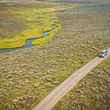

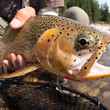

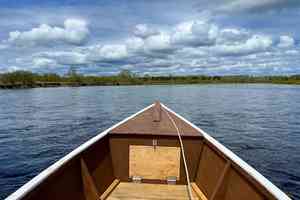


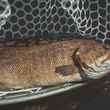

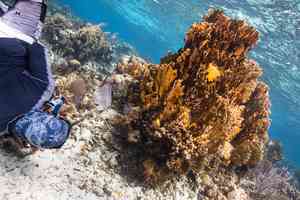


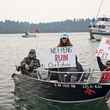





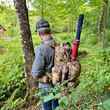




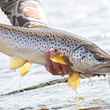
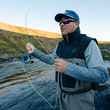
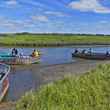

Comments
Roger Ohlund replied on Permalink
"No angler is more fortunate than the American angler"? You know, before you start throwing statements like that around you really need to get your facts straight. There are many countries in the world with higher relative percentage of wilderness, better fishing, more liberal public access and equally clean waters and nature, if not a lot cleaner. In fact, there are countries where a private property sign is absolutely nowhere to be seen even though it is private property. That said, yes, be thankful because there are many politicians and corporations out to change the fact that we still have pristine places to fish.
Mike Curry replied on Permalink
Very well stated across the boards, Chad. Great piece of great import. Tight lines and happy holidays. -- Mike
Pages